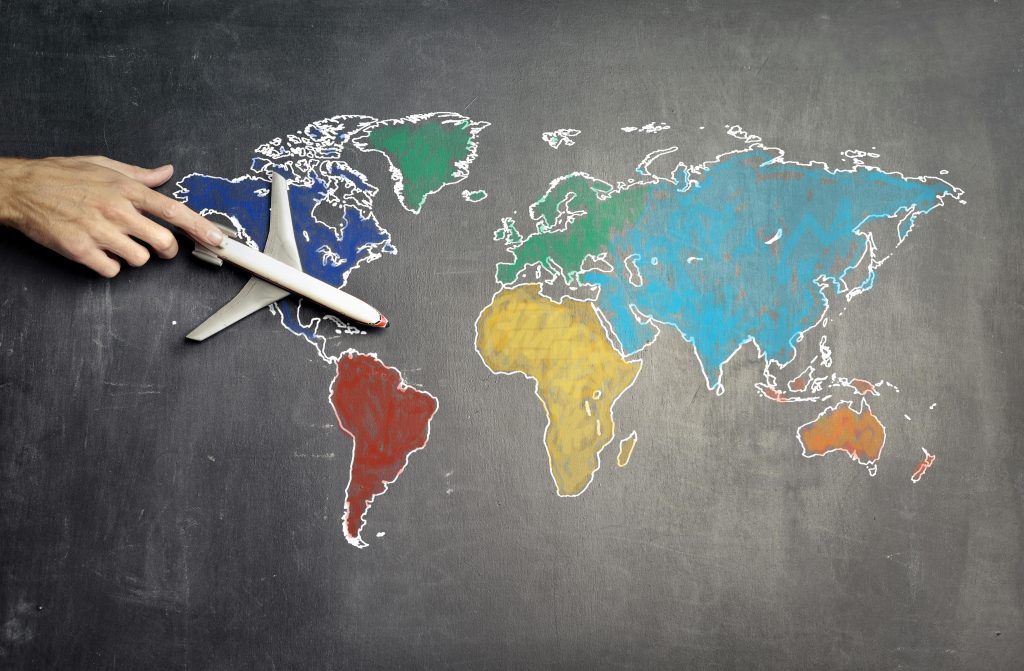
Flying is a wonderful mode of travelling, yet it’s not without its own hurdles. Long security lines, cramped seats, and noisy passengers are common problems everyone faces. For PWDs, however, travelling via an airline can be much more frustrating and inconvenient. Here are several reasons why:
A Basic Lack of Accessibility
Every airport and airline across the globe has some form of accessibility services, but that doesn’t mean it’s sufficient. Travelers with disabilities often have to deal with check-in kiosks they can’t easily use. Many check-in kiosks have input systems that are too convoluted to use for people with certain physical disabilities. Such kiosks may also have bad or no colour contrast, which can be frustrating for users with colour blindness.
Beyond the issues with check-in kiosks, many airlines also have poorly designed ramps, or a lack of staff with the proper training to assist travellers with disabilities. Even getting on the plane can be very difficult if staff aren’t trained to handle mobility devices properly.
Inconveniences for Wheelchair Users
It’s true that there are several assistive services available for wheelchair users on most flights. Yet many airline companies have a very strict limit per flight on how many PWDs they can provide such services for.
For example, an airplane could have Priority Seats specifically for PWDs, which are close to PRM lavatories, which are toilets for ‘people with reduced mobility’. That said, such Priority Seats are extremely limited in number.
Meanwhile, other airlines might offer no more than 8 wheelchair services per flight, provided that the number of PWDs onboard are no more than 4 individuals.
To add to the frustration, wheelchairs – especially large and heavy powered ones – are stored in the cargo area, and many end up getting damaged during the flight.
Tiny Bathrooms
Most airplane bathrooms are very small. PRM lavatories are very limited and are not always available on certain aircraft, which often means PWDs must rely on regular, tiny bathrooms to relieve themselves.
However, regular airplane bathrooms often lack assistive devices and other conveniences, which in turn can make its usage difficult — even borderline impossible – for many PWDs. On short flights, some PWDs may choose to simply avoid drinking water and eating food to skip using the bathroom entirely. Though on much longer flights, such practices become an unhealthy and impractical solution to address the underlying lack of accessibility.
The Potential for Communications Breakdown
People with sensory or cognitive disabilities often struggle to communicate with airline staff. Even though there are rules to help, not all staff are trained to assist passengers who are deaf, hard of hearing, blind, or neurodivergent. Important information like safety instructions or meal options can be hard to access, often leaving these travelers feeling ignored or confused.
Assistive Tools vs. Security Protocols
Airport security can be an especially frustrating experience for PWDs that rely on certain assistive tools, especially if they’re made with metal. Prosthetics, mobility aids, and medical devices often set off alarms, leading to pat-downs and long inspections. Some security staff lack understanding and sensitivity, which can also make the process humiliating.
Progress in Accessibility
That said, there are several global practices that airlines have adopted to improve the accessibility of flying tremendously, even if there’s room for improvement. For example, most airlines don’t charge additional storage fees if you want to bring your personal wheelchair onboard flights. Excess baggage fees also largely don’t apply for any number of assistive devices you bring, provided it doesn’t cause any electrical disturbances during a flight.
References
Media Now Insights (2023) Air Travel With a Disability: Challenges, Tips, and Accomodations [Accessed 21 January 2025] Available at: https://www.mni.com/blog/air-travel-with-disabilities
Sunyoung Park (2023) Kiosk accessibility challenges faced by people with disabilities [Accessed 25 January 2025] Available at: https://link.springer.com/article/10.1007/s10209-023-01028-4
Kings Floyd (2024) Trips Not Taken, Money Not Made: Inaccessible Air Travel Hurts Disabled Travelers and Airlines Alike [Accessed 25 January 2025] Available at: https://tcf.org/content/report/trips-not-taken-money-not-made-inaccessible-air-travel-hurts-disabled-travelers-and-airlines-alike/